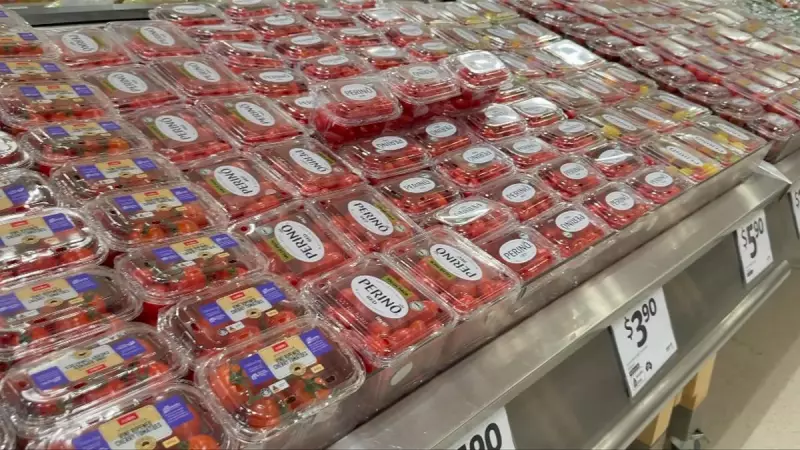
For the third consecutive year, every major Australian supermarket has failed to meet basic sustainability standards for plastic packaging, according to a damning national audit. The findings reveal a system where environmentally conscious shoppers are often penalised with higher prices when attempting to avoid disposable plastics.
The Plastic Price Penalty
The investigation, conducted by the Australian Marine Conservation Society (AMCS), uncovered that in more than 70 per cent of cases, customers are forced to pay a premium to select loose, plastic-free produce. This creates a significant financial barrier for shoppers like pensioner Trish, who carefully manages a weekly budget.
"I hate the polystyrene and the plasticated everything," Trish expressed, highlighting a common frustration. "I think it's a complete fallacy that we are paying the prices we are paying."
Clear examples of this pricing disparity were documented. Loose onions were priced at $3.90 per kilo, while their pre-packaged counterparts cost just $3. Similarly, red and white potatoes were found to be 50 cents cheaper when sold in plastic bags, and loose lemons carried a higher price tag than packaged ones.
Supermarkets Under Fire
Tara Jones, a representative from AMCS, delivered a stark report card for the retail giants. "Coles, IGA and Woolworths all scored poorly. It's a really disappointing result from the four biggest supermarkets in Australia," Jones stated. She also noted that Aldi has not yet published its sustainability results.
The problem extends beyond the physical store aisles. Jones highlighted significant issues with online shopping, where customers have little control over excess packaging. "In most online orders from Coles and Woolworths, customers cannot opt out of additional plastic packaging," she explained. "From the customer experience, there is so much plastic it's getting harder and harder to avoid."
Defence and Calls for Change
Supermarkets have defended their reliance on plastic, citing reasons such as prolonging produce freshness, ensuring hygiene standards, and enabling bulk purchasing at lower prices. Graeme Hughes from Griffith University supported this, pointing to practical business benefits. "From inventory control, hygiene in store, and the ability to turn over stock, it also brings marketing benefits," Hughes said.
However, the AMCS is urging for a fundamental shift in strategy. Jones criticised the current focus, stating, "Supermarkets are concentrating on recycling and swapping materials. But what we really need is to cut unnecessary plastic, encourage reusable and refillable options, and take the lead on real change." This ongoing failure suggests that without significant pressure and policy change, Australian shoppers will continue to face the difficult choice between their budget and their environmental values.






